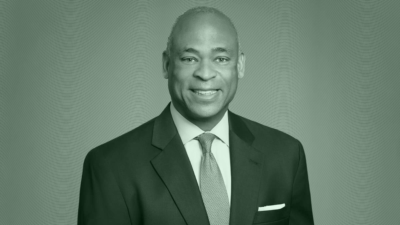Why US Bank, UBS, JPMorgan All Shut Down Their Robo Advisors
Thin margins are one reason, but the shutdowns don’t necessarily spell the end of automated advice.

Sign up for market insights, wealth management practice essentials and industry updates.
US Bank’s robo may have gone the way of the dodo, but automated investing tools aren’t extinct just yet.
US Bank officially shuttered its robo advisor last month due to “evolving market conditions and customer preferences,” the bank said in an email. Called Automated Investor, the robo accounts were automatically moved to either self-directed options or its Wealth Connect advice service. The move is the latest by a major bank to nix its robo offering, following UBS winding down its robo in June and JPMorgan Chase closing its own version last year. Given the thin profit margins, the closures may have been expected, but they don’t necessarily spell the end of automated advice.
“There’s going to be a few winners across the space, and those that don’t reach a pretty significant scale are going to struggle,” said David Goldstone, manager of investment research at Condor Capital Wealth Management, which publishes its quarterly Robo Report. “But robo advisors on the whole are not going away. They serve a certain segment of the population, and I think they do that pretty well.”
A Robo Reckoning
Even though digitized advice is significantly cheaper than human input, high customer acquisition costs and operational maintenance make for razor-thin margins. Even Wealthfront, which has one of the most successful robo products, revealed in its recent IPO filing that the lion’s share of its profits, roughly 75%, comes from its cash accounts. “As managers at these larger institutions are looking at these products, they’re making a decision of whether or not it’s worth the resources to continue to support a product that is just not that profitable,” Goldstone said.
Other recent robo closures include:
- Goldman Sachs’ Marcus Invest, which it sold to Betterment in April 2024.
- BlackRock’s FutureAdvisor, which it sold to Ritholtz Wealth Management in 2023.
Reaping Robo Rewards. Still, robos can be good stepping stones for newer clients, setting them on the pathway to becoming traditional advice clients. “Robo-advisors within large financial institutions are generally operated as loss-leaders … with the hope that the client becomes profitable to the business,” said Ken Lotocki, chief product officer at Conquest Planning. And the term “robo-advisor” may not apply in the future, he added, as the technology evolves.
“There is a demand for holistic digital tools that go beyond investments of today’s robo-advisors,” Lotocki added. “These digital tools are going to support and be developed around hybrid-advice models … [T]his blend of digital convenience and human empathy and experience is what we are going to see more of in the future.”











